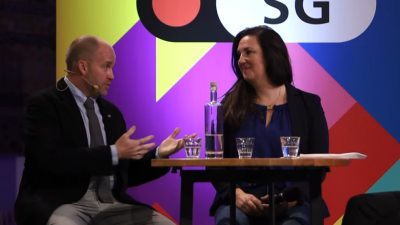Oorlog en vrede
From Israel to Ukraine, to Syria, Myanmar and South Sudan: currently many armed conflicts are happening all over the world. War can start, seemingly, in an instant. We have seen this after October 7th , when Hamas attacked Israeli civilians after which the Israeli state retaliated. Similarly, Ukraine fought back after Russia invaded Ukraine. It seems easy to start a war, but how can we end one? Does one party just surrender? Do they run out of ammunition? Or are negotiations the solution?
What is a war?
“War is miscalculation”, states historian of war from Utrecht University Dr. Simeon Paravantes. “You miscalculate how well your opponent will react, you overestimate how well your forces will do and underestimate how much you will need.” It’s matter of perception of risks and benefits. “When wars start, it means that the state has decided to achieve political objectives through military means.”
War often starts with a high intensity and huge amounts of destruction and death. But it is the period after these initial attacks that will shape what type of war it is going to be. The first option is that one side capitulates, they accept the defeat and surrender after the surprise of the attack. The second option is that overwhelm your opponent, but the opponent resists. Then war of insurgency will take shape. “When people decide to resist, every act of repression and every act of violence creates more revolutionaries.” Paravantes explains. If this does not happen, there is a third option. Neither side can achieve immediate victory and the attacks go back and forth, the conflict then evolves into a war of attrition. “There is a myth that you can’t win a war of attrition.” Paravantes explains. “But attrition means that you fight until the other side loses the will to continue.”
Hot or cold?
During these wars of attrition, there are often a lot of casualties. The World War II for example resulted in the death of 3% of the world population. This is hot warfare full of kinetic fighting and attacks. The opposite is a cold war, but that doesn't mean there is no conflict. Paravantes: “It means that both sides understand that the cost of war is a price that is too high for them to pay.”
How to mediate peace?
Where historian of war Paravantes focuses on the past, peace mediator Fleur Ravensbergen focuses on the future. With the unfolding Israel-Palestina war, journalists have been asking her to explain the current situation. Especially what the situation means and how it is different to previous escalations of the conflict. “I feel like we are not looking forward enough” says Ravensbergen in response to the current coverage of the conflict. “I don’t mean predicting what is going to happen, but looking at the risk of escalation in the current situation beyond what already is happening.”
Peace mediation can be done by the United Nations or powerful states, for conflicts that are ‘smaller’ Ravensbergen and her NGO are contacted. Before taking the case, she researches the situation thoroughly by talking to both parties and figuring out if they are willing to join the negotiation table. Ravensbergen specialized in conflicts where talking with extremist groups is necessary. When she finds that the conflict fits her niche and all parties are willing to join the negotiation table, she takes the case.
Importance of language
Similarly, to the academic work of Paravantes, research, language and rhetoric are very important when it comes to resolving conflicts. But Ravensbergen notes that her job is often less structured than that of the historian. “Some people in our organization would always say: ‘the less you write down in certain stages, the better.’” Ravensbergen illustrates and emphasizes that it is important to choose a rhetoric that will not escalate the situation further and drive groups apart. An example of this sort debilitating rhetoric can be seen in the Israël-Palestina war, “When Abbas (the Palestinian President) talks to Hamas, he is friends with terrorists. When he doesn’t talk to Hamas, they say: you see? The Palestinians are not united. They are playing a game.” Says Palestinian doctor and partyleader Mustafa Barghouti to the Dutch newspaper NRC in an article about peace negotiations between Israel and Palestina.
Does the end of a war mean peace?
It might be counter intuitive, but winning a war does not always mean that there is peace afterwards. Think about the US and Afghanistan: the US won the war but culminating insurgencies under their occupation resulted in conflict after their departure. But ending a war and restoring peace is possible. When the Second World War ended, the allies created a globalized system that would make it harder to start a war again. By founding the UN they could successfully keep the peace.
Though the work of a war historian and a peace negotiator is very different, they both work with or towards the same document: a peace treaty. For historian Paravantes written down material of the peace process is indispensable: “We must understand that the treaties, such as the one of Versailles, are the end of a very long process and every word in these things has been argued and fought over.” Resolving conflicts can change the way you see the world. “What you see, depends very much on where you are and who you have around you.” Ravensbergen concludes from her years of witnessing disagreements and conflicts and shares her advice. “Have the awareness and try to curiously figure out where they are coming from when they see things so differently.”
If you want to know more about the history of war and how peace negotiators work, you can watch the recorded evening How to end a war.



